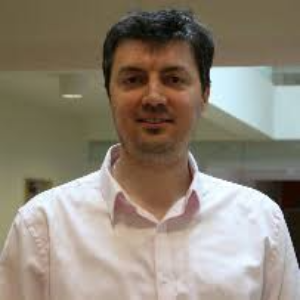Neural Science Conference-Global Edition

Chris G. Antonopoulos
University of Essex, UK
Biography
Dr Antonopoulos obtained his BSc in Mathematics from the University of Crete, Greece in 1999. Later that year, he joined the Department of Mathematics at the University of Patras, Greece, where he obtained his MSc degree in Applied Mathematics in 2002 and his PhD in the stability of multi-dimensional Hamiltonian systems in 2007. His PhD work involved analytical and numerical studies on the stability and chaos in Hamiltonian systems of many degrees of freedom and on the transition of said systems from classical to Statistical Mechanics. After completing his PhD:
- He accepted a postdoctoral position at UniversiteÌ Libre de Bruxelles (ULB), Belgium, where he worked for 2 years at Prof. P. Gaspard’s group at the Interdisciplinary Center for Nonlinear Phenomena and Complex Systems (CENOLI). During that time, he worked on multi-dimensional Hamiltonian systems and Statistical Mechanics and published 6 papers.
- He joined the Department of Mathematics at the University of Patras, Greece in 2010 as a postdoctoral researcher where he worked at Profs. K. van der Weele and T. Bountis’ group for the European research program “Complex Matter (Critical Phenomena and Collective Behaviour of Multi-Particle Complex Systems)”, awarded under the auspices of the ERA Complexity Network.
- He joined the University of Aberdeen’s Institute for Complex Systems and Mathematical Biology (ICSMB) in 2012. He worked on an information-dynamical approach to characterise and model complex systems as an EPSRC Research Fellow for 3 years at Dr M. Baptista’s group.
- He has been a lecturer at the Department of Mathematical Sciences at the University of Essex since 2015, where he teaches maths modules and conducts research in dynamical systems, chaos theory, computational neuroscience, information theory, complex systems, complex networks, and network inference, with applications on the domains of brain dynamics, complex networks, and on the spread of COVID-19 in communities.
- He is member of the Institute of Mathematics and its Applications (MIMA) and London Mathematical Societies. He is guest associate editor for Biophysics (Frontiers in Physiology, Frontiers in Physics and Frontiers in Molecular Biosciences), an associate editor for Frontiers in Computational Neuroscience and an editor in Scientific Reports (Nature). He is editor in Open Physics Journal (De Gruyter). He is also reviewer in various international journals.
Dr Antonopoulos is the author of 55 publications in peer reviewed journals, 2 editorials and, has 9 publications in conference proceedings and book chapters.
He holds collaborations with researchers from Universities and Institutions from across the UK and overseas, and:
- develops novel mathematical theories and methodologies to study complex systems such as the brain,
- seeks to use dynamical systems, chaos and network theory, and mathematical modelling to better understand complex systems,
- models and studies the spread of COVID-19 in communities using ideas from dynamical systems, chaos theory and complex networks.
